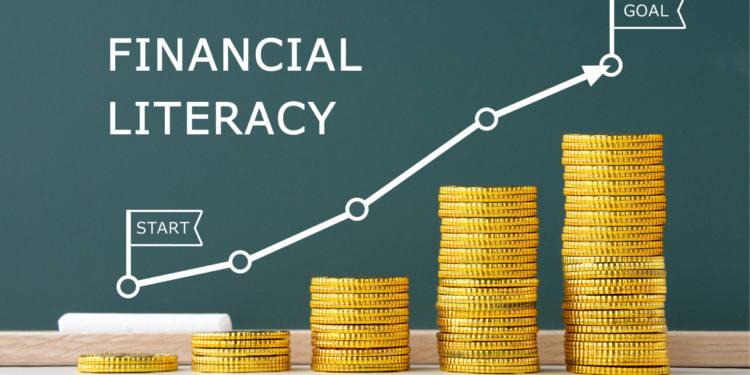
Table of Contents:
- Understanding Financial Literacy in Today’s World
- The Foundation of Smart Money Management
- Compounding Benefits: Savings, Investing, and Time
- How Literacy Reduces Risk and Builds Confidence
- The Role of Technology and Resources
- Financial Literacy in Families and Communities
- Seeking Guidance: Professional and Virtual Support
- Continuous Learning for a Resilient Future

Table of Contents
- 1 Understanding Financial Literacy in Today’s World
- 2 The Foundation of Smart Money Management
- 3 Compounding Benefits: Savings, Investing, and Time
- 4 How Literacy Reduces Risk and Builds Confidence
- 5 The Role of Technology and Resources
- 6 Financial Literacy in Families and Communities
- 7 Seeking Guidance: Professional and Virtual Support
- 8 Continuous Learning for a Resilient Future
Understanding Financial Literacy in Today’s World
The pace and complexity of today’s financial environment make financial literacy more important than ever. With new products, apps, and investment choices constantly evolving, the ability to understand, evaluate, and act on financial information can shape a person’s future opportunities. Financial literacy isn’t confined to knowing banking basics—it’s about grasping concepts like interest rates, inflation, credit scores, and the nuanced benefits and drawbacks of loans or investment vehicles.
As the economy shifts and digital platforms expand, more people connect with virtual financial planners to strengthen their money management skills. These professionals offer remote, tailored guidance that can be updated in real-time as conditions change or new goals emerge. Whether navigating a turbulent market, evaluating educational loans, or considering retirement savings strategies, expert support can demystify options and boost confidence. With financial literacy as a guiding principle, individuals and families are better positioned to seize opportunities and weather setbacks.
The Foundation of Smart Money Management
Smart money management rests on strong financial literacy. This means understanding how to earn, save, and spend and having a strategy for budgeting, tracking expenses, and setting priorities that reflect personal values. Data suggests that households with higher financial literacy scores demonstrate better financial discipline and are less likely to accumulate unhealthy debts. They’re also more likely to establish strong saving habits early, reducing pressure and uncertainty in stressful times. Building this foundation starts with basic concepts like distinguishing needs from wants, setting realistic short- and long-term goals, and consistently monitoring progress.
The most resilient financial plans often involve regular check-ins and flexibility. For example, a well-prepared budget can adapt to income fluctuations or unexpected expenses without derailing overall progress. By tying spending habits to clear goals and outcomes, people can make more mindful daily decisions, accumulating major benefits over the years.
Compounding Benefits: Savings, Investing, and Time
The idea of compounding is simple but incredibly powerful—time turns small, consistent savings and investing into significant long-term gains. Financial literacy introduces concepts like compound interest, investment growth, and portfolio diversification, helping people recognize the value of starting early and sticking to a plan. Those who understand the math behind compounding tend to prioritize regular contributions to savings accounts, retirement funds, and investment portfolios.
Having a grasp on risk and reward and knowing how different asset classes behave over time empowers people to make strategic choices compatible with their current life stage. According to personal finance news and national surveys, Americans who are financially literate are less likely to withdraw from retirement accounts early or chase risky “get rich quick” schemes. Instead, they focus on steady progress and discipline, harnessing the power of time for sustainable security.
How Literacy Reduces Risk and Builds Confidence
Knowledge reduces risk in nearly every aspect of life, and financial decision-making is no exception. When people understand how credit scores are calculated or how interest accrues on a loan, they’re less likely to fall victim to high-fee or predatory financial products. Informed individuals also tend to shop around for better rates, read the fine print, and know when to ask clarifying questions.
Confidence grows alongside literacy. Research from leading financial publications shows that people who educate themselves about money are better equipped to stick with their plans during periods of economic uncertainty. Instead of panic selling during a downturn or overextending during a boom, they maintain steady habits and rely on their knowledge to navigate changes calmly.
The Role of Technology and Resources
Technology gives unprecedented access to education and financial management tools. Mobile apps help automate savings, categorize spending, monitor investment performance, and send timely reminders about bills or budget thresholds. Many services offer simulations to project the impacts of different choices—whether that’s taking on a loan, increasing retirement contributions, or making a large purchase. These tools demystify otherwise complex concepts and make literacy actionable.
Free and reputable online resources, from governmental organizations to independent non-profits, have made it easier to gain credible advice and update skills at any stage of life. Many provide calculators, interactive courses, and forums for discussion, narrowing the information gap and empowering more people to improve their financial health.
Financial Literacy in Families and Communities
Financial literacy is most effective when it spreads beyond individuals to families and entire communities. Early education—teaching children how to manage allowances, save for goals, and spend wisely—builds lifelong habits. Parents and guardians can open basic savings accounts together, set up matching contributions, or use shopping trips to discuss smart decision-making.
Schools and community programs also play a vital role by integrating practical credit, interest, and budgeting lessons. Studies indicate that when communities embrace financial education, there’s a reduction in debt-related stress and an increase in participation in beneficial programs like retirement accounts or college savings plans.
Seeking Guidance: Professional and Virtual Support
Even the most knowledgeable self-starters can benefit from professional insight, especially as life circumstances or financial regulations change. Certified counselors, investment advisors, and virtual financial planners provide support tailored to individual goals, risk tolerance, and current realities. Virtual planners, in particular, offer flexibility—enabling clients to connect on their schedule, access real-time data, and adjust plans in a fast-changing world.
Guidance can be especially valuable during major transitions, such as a career change, marriage, home purchase, or retirement. A trusted advisor prevents common mistakes and helps maximize opportunities that come with smart planning and industry expertise.
Continuous Learning for a Resilient Future
The financial environment will keep evolving, but the fundamentals of literacy remain timeless. Committing to continuous education—reading articles, taking reputable courses, or participating in local seminars—ensures that skills stay sharp and adaptable. People who commit to ongoing learning are better equipped to anticipate challenges, respond to opportunities, and share wisdom within their circles.
Ultimately, financial literacy is more than just understanding numbers. It’s a dynamic, lifelong toolkit for building confidence, reducing anxiety, and creating long-term security regardless of the economic climate. Those who invest in it benefit themselves, their families, and their communities for generations to come.

